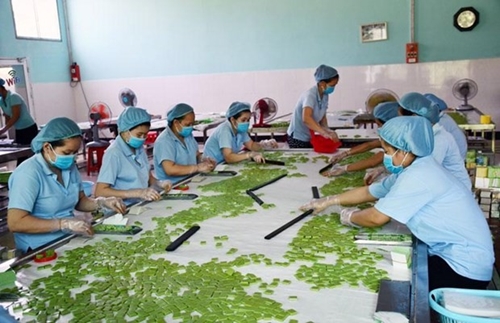The event was jointly organized by the Enterprise Development Agency under the Vietnamese Ministry of Planning and Investment, the U.S. Department of Commerce, the U.S. Agency for International Development (USAID), the U.S. Department of State, and the U.S. Support for Economic Growth in Asia (U.S.-SEGA) technical assistance program.
    |
 |
|
Promoting gender equality and empowerment of women is an important policy direction. (Photo for illustration: vneconomy.vn) |
Addressing the event, Deputy Director of the the Enterprise Development Agency Bui Thi Thu Thuy said women-owned small and medium-sized enterprises (SMEs) play an important role in creating jobs and incomes for workers, contributing to improving the position of women and and increasing investment in health care and education for children, especially girls, and promoting economic growth potential.
However, they still have limited capability and face many difficulties and barriers related to business connection, science and technology application, financial access, electronic payment, logistics and customs, especially in the context of the COVID-19 pandemic, she said.
Promoting gender equality and women's empowerment is an important policy direction. According to the national strategy on gender equality in the 2021-2030 period, the rate of female directors or owners of businesses is expected to reach at least 27 percent by 2025 and 30 percent by 2030.
Thuy said policies to support female entrepreneurs in e-commerce have also been integrated in general policies on supporting SMEs and e-commerce development.
Women entrepreneurs will be supported 100 percent or part of the cost to participate in international e-commerce floors.
Many public-private partnership initiatives as well as those of the private sector have been implemented and brought practical and useful impacts to the female business community in joining cross-border e-commerce, Thuy noted.
In October 2020, the APEC forum approved the initiative “Women-Owned Business in Cross-Border E-Commerce Diagnostic Toolkit,” which aimed to provide methods to support APEC economies in building a more favourable environment for women in accessing international markets via using e-commerce platforms.
Participants focused their discussions on opportunities and challenges for women-owned enterprises engaging in cross-border e-commerce, gaps in policy and actual data; and shared public-private partnership efforts to promote female entrepreneurs' participation in cross-border e-commerce.
Source: VNA